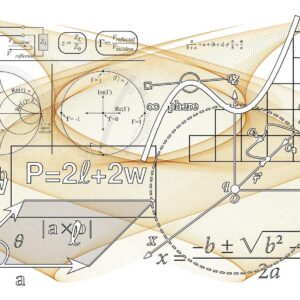What Is Peer Tutoring and How Does It Compare to Other Tutoring Methods?
 " />
" />
Peer tutoring represents an underutilized learning strategy. When done well, the relationship benefits both the tutor and the tutee. While the importance of a skilled teacher is undisputed, peer teaching provides another channel for understanding and increasing academic performance.
Comparing Peer Tutoring to Other Tutoring Methods
Peer tutoring, as with any educational strategy, has its own unique advantages and disadvantages when compared to other tutoring interventions. What does a tutor do? We'll explore the tutor definition in all of its forms.
What Is Peer Tutoring?
Peer tutoring is an instructional strategy that involves fellow students helping each other learn and grow in their understanding of various subjects or concepts. It's a form of cooperative learning that encourages active participation and engagement, where students alternate taking the role of tutor and tutee.
In peer tutoring approaches, more advanced students help less knowledgeable students learn a specific subject or concept. This doesn't necessarily mean that the student tutor is the most talented or academically gifted student in the class. Instead, they're individuals who have a solid understanding of a particular topic and can effectively communicate that knowledge to others.
The term "peer tutoring model" might suggest a one-way flow of knowledge from the tutor to the tutee. But, in practice, it's typically a more mutual process. Many classwide peer tutoring programs offer all students the opportunity to both teach and learn. This reciprocal peer tutoring fosters a cooperative and collaborative educational environment.
Comparing Peer Tutoring to Other Tutoring Methods
Peer tutoring, as with any educational strategy, has its own unique advantages and disadvantages when compared to other tutoring interventions. What does a tutor do? We'll explore the tutor definition in all of its forms.
Traditional/Professional Tutoring
Traditional tutoring often involves a professional educator providing one-on-one instruction to a student. These tutors have formal training in education and extensive knowledge of specific subjects. This form of tutoring can be highly effective, as it provides personalized, targeted instruction based on a student's unique learning needs.
However, professional tutoring can be costly and may not be accessible to all students. Moreover, the authoritative dynamic between a professional tutor and a student might not always promote the most conducive learning environment.
Peer tutoring, on the other hand, creates a more egalitarian learning atmosphere. Students might feel more comfortable asking questions or expressing confusion with a peer. Additionally, peer tutors can often relate to the challenges their tutees are facing, which can foster empathy and mutual understanding.
Small Group Tutoring
Small group tutoring involves one tutor working with a handful of students. This model can promote collaboration and group problem-solving, allowing students to learn from each other's questions and perspectives.
However, it may not provide the same level of individualized attention as one-on-one tutoring. In some cases, quieter or less confident students might struggle to participate fully in a group setting.
Peer tutoring, especially in a one-on-one format, can provide a more individualized, focused learning experience. However, it can also be adapted to small group settings, blending the benefits of both strategies.
Online Tutoring
Online tutoring allows for flexible scheduling and can connect students with highly qualified tutors from around the world. It's a versatile option that can cater to different learning styles, with tools for visual, auditory, and kinesthetic learners.
However, online tutoring can also present challenges, such as technical difficulties and a lack of personal connection. It may also not be suitable for learners who struggle with self-discipline or learn best in hands-on, interactive environments.
Peer tutoring sessions can be conducted online or in person, offering flexibility. In an online setting, peer tutors and tutees might feel even more comfortable interacting, as digital communication can sometimes feel less intimidating. However, peer tutoring is also susceptible to the same potential drawbacks as online tutoring in general.
Benefits From Peer Tutoring
Peer tutoring is a dynamic, multifaceted process that offers a range of benefits for both tutors and tutees at all grade levels. This cooperative approach to learning fosters not only academic growth but also emotional and social development. Let's delve into the specific benefits:
Enhanced Learning Process for Tutor and Tutee
Peer tutoring creates a win-win scenario in which both the tutor and tutee stand to gain significantly.
For tutees, one-on-one attention from a peer tutor provides a personalized learning experience. Tutors can explain concepts in different ways, making difficult topics more digestible. Moreover, peers often use language and examples that are more relatable, which can aid in understanding and retention.
For tutors, the act of teaching reinforces their own understanding of the material. Explaining a concept to someone else requires a deep understanding of the topic, and questions or misconceptions from the tutee can challenge the tutor to consider the material from new angles.
Increased Student Engagement and Motivation
Peer tutoring promotes active learning. Instead of passively receiving information, students engage directly with the material and with each other. This hands-on approach can lead to increased interest and motivation.
The social aspect of peer tutoring can also make learning more enjoyable and less intimidating. Students often feel more comfortable participating in peer-led sessions than in traditional classroom settings, which can foster a greater sense of ownership and enthusiasm for learning.
Emotional and Social Skills Development
Beyond the academic benefits, peer tutoring also contributes to developing essential emotional and social skills. For tutors, it can foster leadership skills, increase self-confidence, and promote a sense of responsibility. Tutors learn to be patient, empathetic, and adaptable as they navigate the challenges of teaching.
For tutees, interacting with a peer tutor can boost self-esteem and reduce feelings of academic stress. They can learn to ask questions, express their ideas, and seek help when they need it — all valuable skills for lifelong learning.
In addition, both tutors and tutees have the opportunity to improve their communication and interpersonal skills, learn to give and receive constructive feedback, and develop stronger relationships with their peers.
Implement a Successful Peer Tutoring Program
Implementing a successful peer tutoring program is a strategic endeavor that requires thoughtful planning, consistent monitoring, and ongoing support. It is not merely about pairing students together and hoping for the best. It's about creating a structured, supportive environment where reciprocal tutoring can flourish.
Key elements to consider when implementing a peer tutoring program include selecting appropriate tutor–tutee pairs, providing adequate training for tutors, and establishing clear expectations and goals for each session. Regular feedback and assessment are also crucial to ensure the effectiveness of the program and to make necessary adjustments along the way.
At Alexander Tutoring, our tutoring programs offer many of the benefits of peer tutoring but with the skills and knowledge of experts. Reach out today to find out more.



